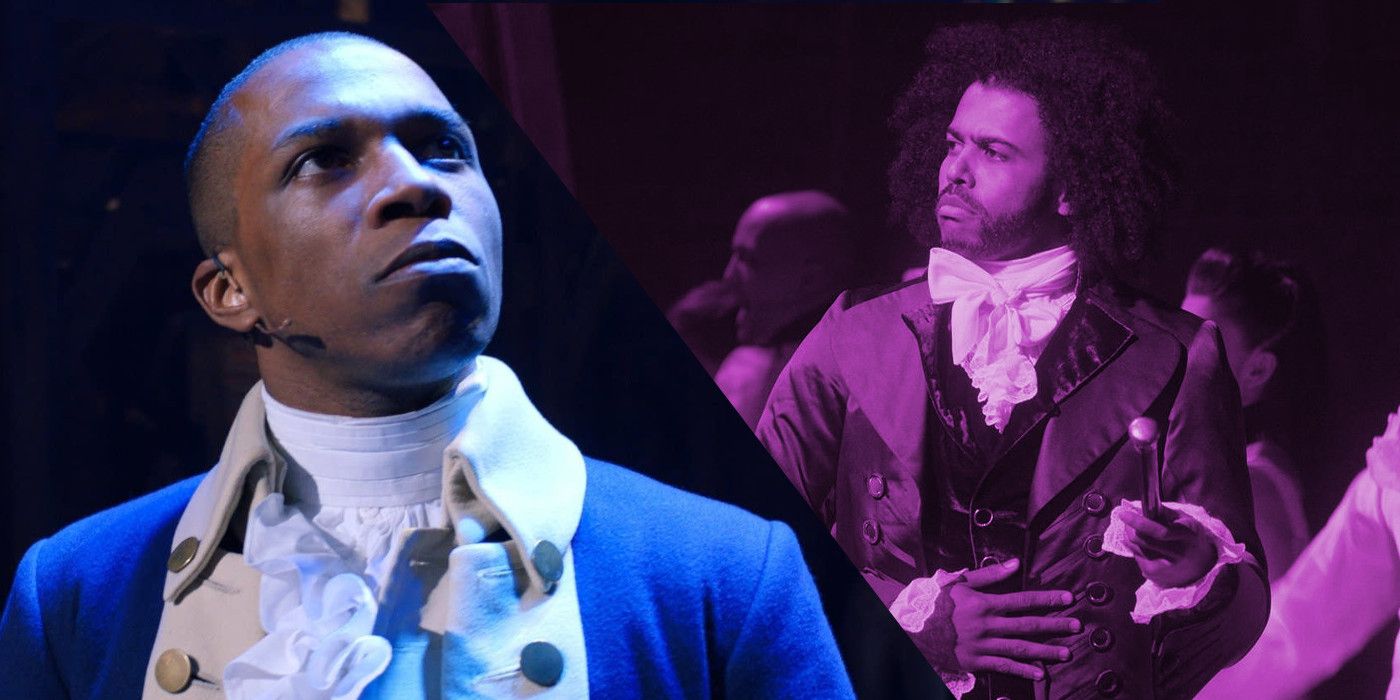
Lin-Manuel Miranda's Hamilton is based on the true life of the mostly forgotten forefather, Alexander Hamilton — but what did the musical leave out about the revolutionary Jefferson vs. Burr election? The musical does its best to maintain historical accuracy, but there are some political nuances that don't fit well into Miranda's prose of rap. Here is a breakdown of everything that was left out from Hamilton about the Election of 1800.
The Election of 1800, also referred to as "the revolution of 1800," was one of the most important in American history as it set a precedent for a growing nation. Four main candidates were on the ballot; Thomas Jefferson, Aaron Burr, John Adams, and Charles C. Pinckney. Jefferson and Burr were members of the Democratic-Republicans, and Adams and Pinckney belonged to the incumbent Federalist Party. In 1800, electors were given two votes each. Parties would usually coordinate their votes to ensure a one-vote difference between their candidates, securing the presidency and vice presidency for their party, as second place determined the Vice President at the time. The Democratic-Republicans failed to do that in 1800, leaving Jefferson and Burr with 73 votes each.
The election dragged on for months, from December 1800 to February 1801. The election is portrayed in the Hamilton song "The Election of 1800," featuring Lin-Manuel Miranda as Hamilton, Daveed Diggs as Jefferson, Leslie Odom Jr. as Burr, and various other cast members. Of course, this complicated moment in politics was slightly watered down to fit inside the four-minute song; while it gets the major facts correct, there is more to the story that was erased from the narrative.
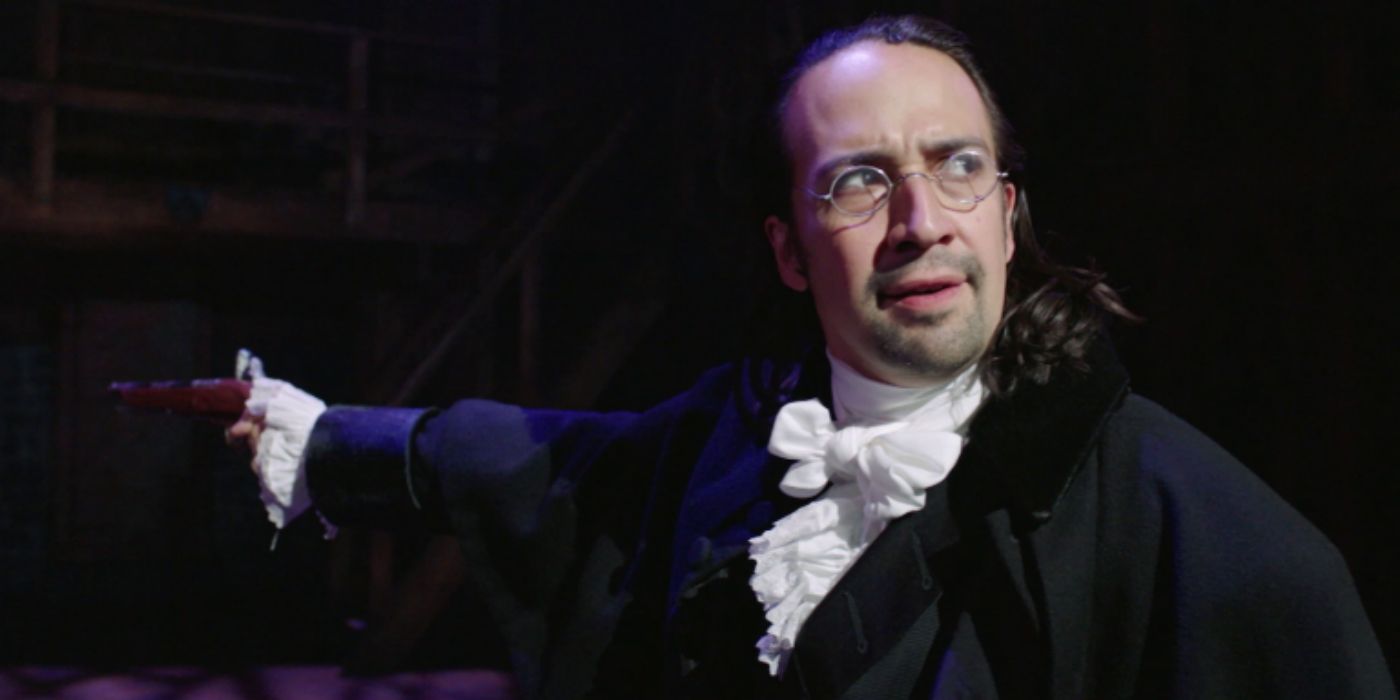
When the election was narrowed down to Jefferson and Burr, everyone was looking to Hamilton to see who he would support. With his two greatest enemies fighting for the presidential seat, Hamilton had a difficult decision to make in who to back. Hamilton began a massive letter-writing campaign to his fellow Federalists in support of Jefferson, citing that he would rather side with someone whose principles he disagreed with than someone who didn't have any at all. However, Hamilton didn't do this all because he wanted to rebuild some burnt bridges with Jefferson; Hamilton leveraged Jefferson by saying he would secure Jefferson the Federalist votes if he promised to keep the Federalist fiscal system intact once he entered office. Knowing that a Federalist wouldn't be taking office, Hamilton's greatest concern was making sure the fiscal system he created would continue under the reign of the Democratic-Republicans. Jefferson initially declined the offer, and Hamilton wrote his letters anyway. Jefferson would always deny that he agreed to any of these Federalist deals, but he acquiesced to them once he was in office, and third-party sources — including James Bayard, the sole representative of Delaware — claim he did.
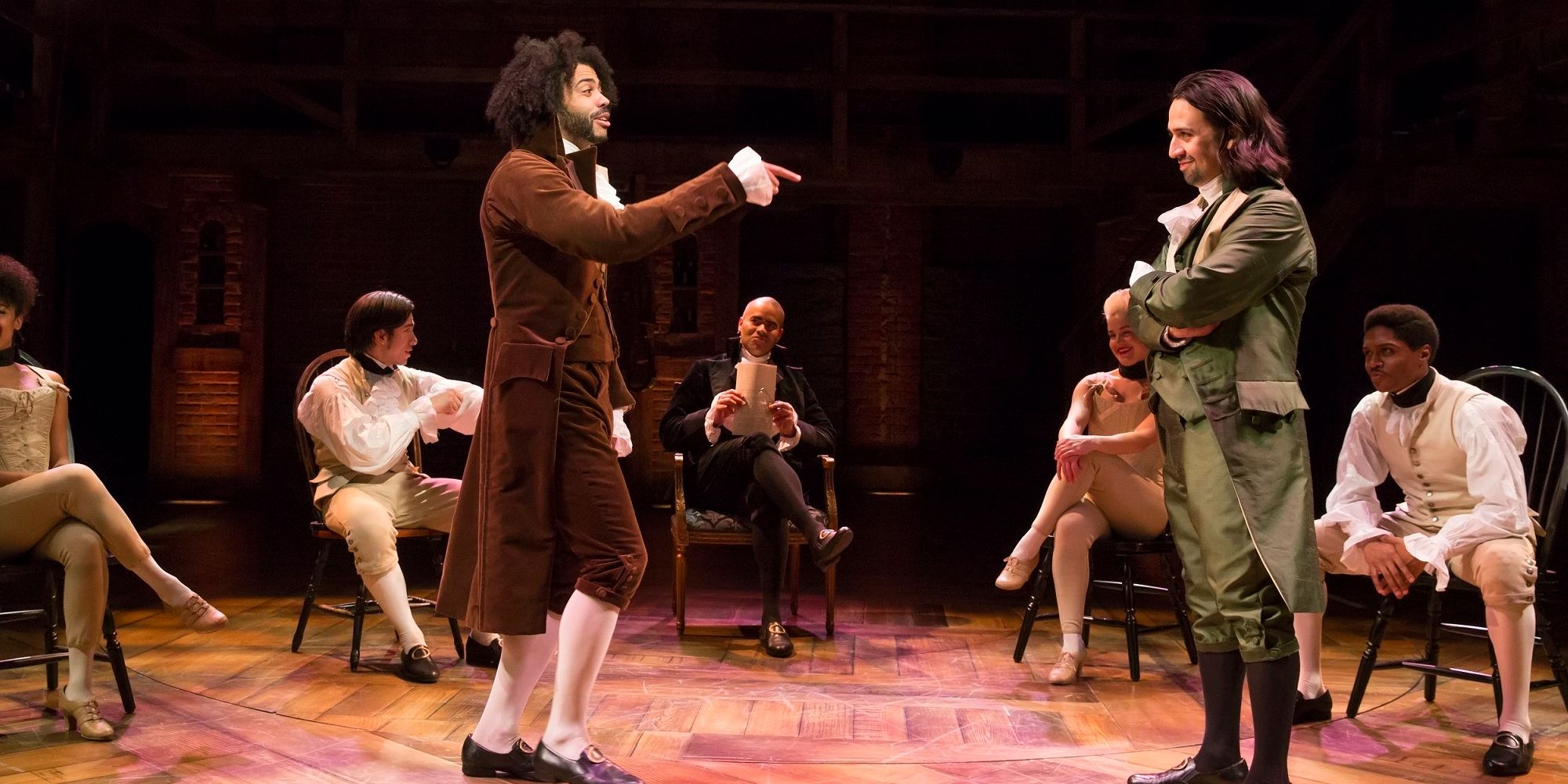
With the election at a tie, a winner couldn’t be declared right away; if the parties couldn’t come to a decision between Burr and Jefferson soon, the country would be left in the hands of the incumbent Federalist Party. To break the tie, an election was held in the House of Representatives. While the tie was mentioned in the Hamilton song, the looming threat of violence was excluded. It took 36 roll calls and a week of deliberation to finally break the tie. During that time, the newly-formed nation was in unrest with an uncertain future ahead of them. Warnings had been building for weeks that there would be consequences if the Republicans were denied the presidency they'd earned. Rumors swirled about a mob ready to take the Philadelphia arsenal and march on Washington, Republicans threatened to have another constitutional convention to restructure the federal government, and Virginia talked of seceding from the Union; with all of this on the horizon, incumbent President John Adams feared a civil war was almost certain. It was likely this looming threat of violence and civil war that pushed the House to come to a decision, and quickly.
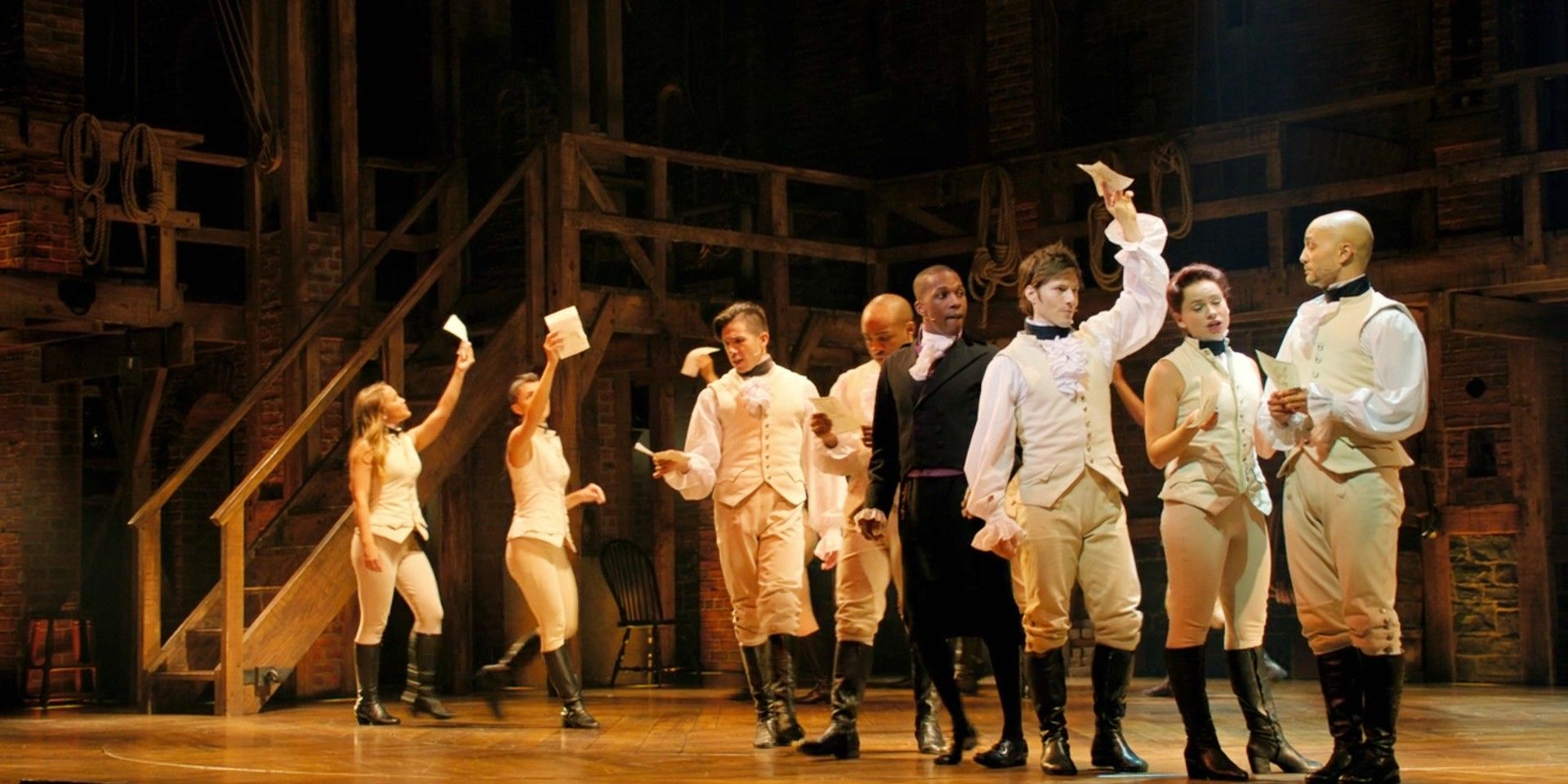
The final vote of the contingent election declared Jefferson the winner and, as Hamilton explained it was indeed a landslide — but it didn't start that way. There was a high amount of pressure for the House to decide on a Presidential Elect; the new nation was quickly approaching a civil war, and the eyes of the world were on America after the Revolutionary War. In order to secure a victory, Jefferson or Burr had to have a majority of states' votes. With 16 states currently represented in the House, they needed 9 states to secure the win. As the votes were taken, Jefferson had 8 states, Burr had 6, and two states cast uncommitted ballots. After 33 roll calls, the result frustratingly remained the same — until James Bayard, the Delaware representative, proposed a deal. Bayard, who originally voted for Mr. Burr — sir — said he would change his vote to "no selection"; this would mean only 15 states were voting, giving Jefferson the majority vote he needed. In exchange for stepping back, Bayard asked a Republican close to Jefferson if Jefferson would accept the terms the Federalists had laid out for him early on. Burr refused to make accommodations with the Federalists, but Jefferson indicated he was willing to play along — just a few days after the deal was offered, Bayard abstained as he promised, and Jefferson was declared the President after seven days of deliberation. In the end, Jefferson won against Burr 10 states to 4.
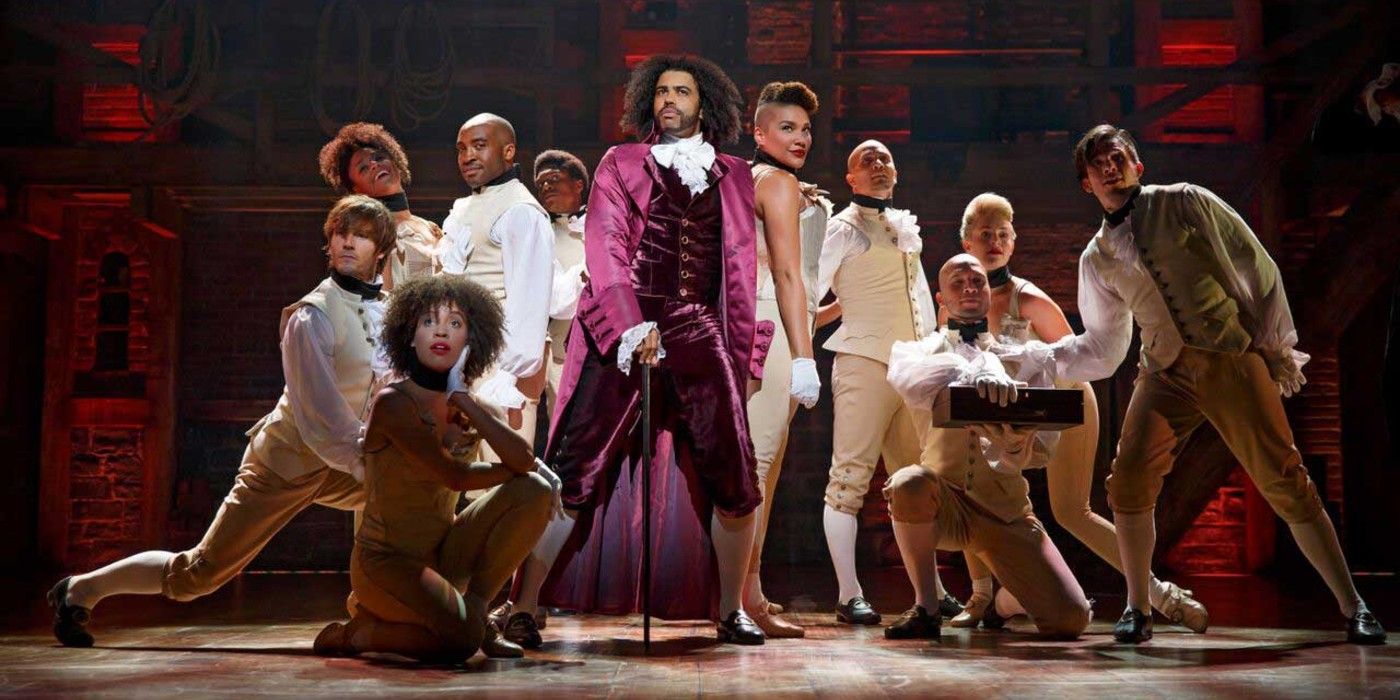
The Election of 1800 changed the electoral process, but not quite in the way Hamilton portrayed it, like Hamilton and Burr's relationship. In the musical, Jefferson makes a quip about changing the way the Vice President is elected in a way that eludes to Burr not being granted his Vice Presidency; this isn't how it went about in history. The election process was indeed changed by 1804, but Burr served his full Vice Presidency, whether Jefferson was fond of that fact or not. The Twelfth Amendment was written soon after the contingent election of 1801, stating that electors would have two separate votes; one vote for President, and one vote for Vice Presidency. The 12th Amendment was ratified and adopted in three years' time, meaning it was in place before the 1804 election. The hope was that this amendment would prevent another instance of a tie, or dueling Presidents and Vice Presidents from separate political parties. There is a theory that Jefferson pushed the 12th Amendment because he no longer wanted to be tied to Burr, which is reflected in the portrayal of Jefferson's attitude towards Burr in Hamilton after the election.
source https://screenrant.com/hamilton-musical-true-story-election-1800-missing-information/

0 comments: